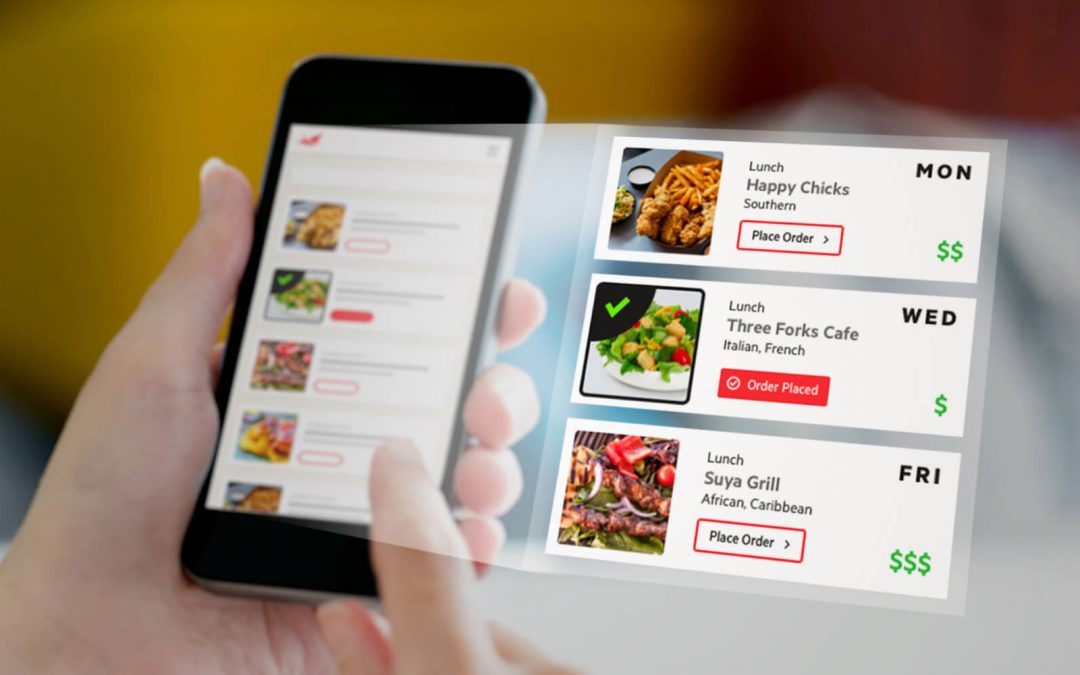With fewer big company catering orders between here and who knows when, ZeroCater is rolling out a new product for scalable catering.
ZeroCater, a business-to-business catering company that aims to enhance company food programs with an AI food-recommendation engine, had to make some changes during COVID. As droves of office workers went home, the company was left without a lot of the ongoing corporate catering engagements, snack deliveries and big events typical for the company.
For nearly every big tech office that dispersed into the proverbial winds, however, ZeroCater CEO Ali Sabeti said there was a new type of company looking for help with food.
“Since the pandemic, we began to see hospitals, schools, warehouses, biotech companies—a lot of new types of companies with essential employees. They wanted these benefits of improved productivity, and safety is such a big deal when you think about people leaving to get a meal,” said Sabeti.
Those new companies were a little different than the typical customer for ZeroCater: venture-backed companies with high-paid employees looking to eek a little more productivity and enhance the company culture with food. Those companies that might think about a corporate café with a ping-pong table and a beer cart. Simply, they had a ton of money to invest in making the next big thing go a little faster. The warehouses and schools just didn’t have the same budgets.
To deliver the benefits without the cost, Sabeti said they created Cloud Café, a model with a sliding scale for costs but the same enterprise-grade catering. Now, groups of 10 people or more can get a meal catered and the company can opt to pay some or all of the cost.
“In general, one thing we’re seeing is that budgets are going down, but companies still want to offer their employees really high-quality food that is what employees want to eat but don’t want to spend $18 to $20 per person per day for it. That was the problem and the need that we saw and customers asked for, ‘How can we lower costs,'” said Sabeti.
For example, he said a food manufacturing company in New Jersey wanted to give employees a good reason not to leave, spend an hour finding and eating food and potentially getting exposed to COVID. It offered a lunch for $6 per person and the company subsidized the remainder. Like the typical ZeroCater offering, employees can choose from a few options in the morning before the food arrives.
Cloud Café also taps into the company’s proprietary food-recommendation AI dubbed FoodIQ, which gives smarter options based on the employee and company choices.
Sabeti said an offering like this had been on the roadmap, but the pandemic accelerated the need for a smaller-scale option and a varied payment option.
“When we thought about that total addressable market of corporate catering. We wanted to be able to feed every single company,” said Sabeti. “That was accelerated by the pandemic, we didn’t have to go evangelize the power of food, these companies came to us.”
He said it was a huge engineering effort over the last nine months. But even for companies that had a cafeteria or a big budget for catering prior to 2020, Cloud Café might be a great fit for the “new normal.”
“There was a lot of new types of companies coming in that accelerated the demand on that front, but what we also began to see is a lot of the traditional offerings that were adopted by a lot of companies, specifically those with cafeterias, they began to break down. When you think about a cafeteria, you’re building a restaurant on site and to make sense from a profitability and cost standpoint but also from a variety standpoint you need to have predictable demand,” he added.
With workplace fluctuations here potentially for a long time to come—even after a vaccine—he said he hopes Cloud Café can help companies fluctuate right along with in-person employment.


